

Marvel Comics Presents ran for 175 issues from 1988 until 1995. Each issue included four eight-page stories with typically two or three on-going features (and no ads). It spotlighted some of the leading creators of mainstream comics over a period of precipitous economic growth and even more rapid decline. Reading through it is an opportunity to revisit any number of weird aspects of 90s superhero comics. This blog is a primitive, oddly regimented, manifestly scattershot crawl through an often disappointing but occasionally splendid comic. All image copyrights are Marvel's. Issue credits linked below. Updated on Wednesdays.
Marvel Comics Presents #10: Early January 1989(11.27.19)
Credits: grandcomicsdatabase
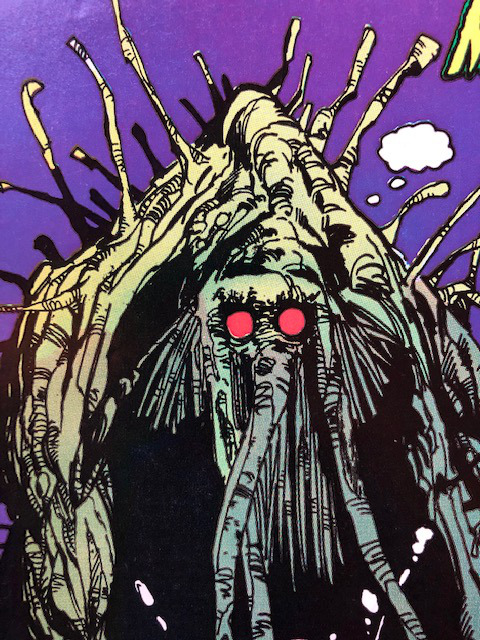
Mike Harris' fastball special is largely spot-on here. This issue marks a bit of a turning point with the final installment of Wolverine's "Save the Tiger" feature and the initial installment of Nocenti and Leonardi's Colossus story, "God's Country." This more or less bears out the original gameplan for MCP: two continuing features with (at least) one anchored by a solo X-Men character. Understandably, we have an X-heavy cover, though one that's marred by some slipshod text layout. (Six separate fonts!) On the bright side, the wild, rear cover lands nicely with a languorous Man-Thing and a sinewy Machine Man. After ten issues of Wolverine covers, the secret high point has been the consistently fun Man-Thing back covers.
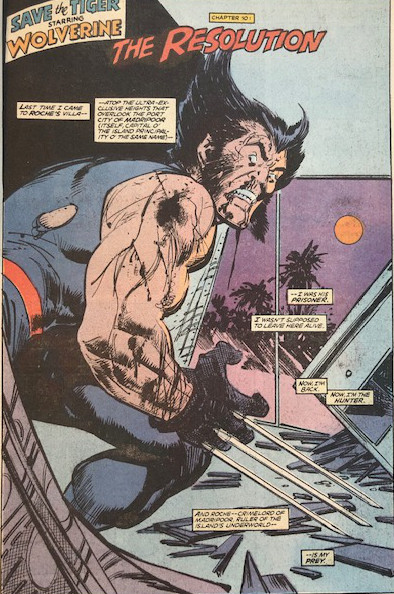
A. Wolverine, "Save the Tiger" [10/10]
The strongest splash opening gets saved for this final installment with stick-straight and implausibly long claws offsetting the scratchy Janson over Buscema. O'Connell plays no real role in the story here, but Jessan's beheading of Roche is a subdued albeit gruesome wrap up. Throughout, Claremont and Buscema have done some remarkable work grounding the Madripoor setting and the romantic conclusion tees up Logan/Patch for future Madripoorian intrigues. The only knock here is some clumsy lettering from Helsler who can't live up to the nifty Orzechowski contribution from earlier installments. As the flagship feature for the launch of the book, it's hard to hope for more, though this certainly hasn't risen to anything like "essential" Wolverine. A slightly more focused affair, with fewer heavies running around would have let some of the formal niceties really shine through.
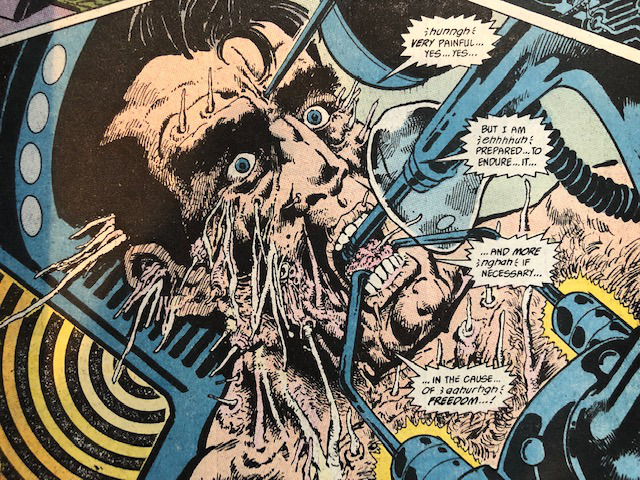
B. Man-Thing, "Elements of Terror" [10/12]
Tom Sutton again handles "finishes" over a fill-in "layout" artist, Don Hudson. There's only a modest dip in quality from previous installments with one page looking oddly dashed off. Otherwise, Man-Thing continues to slowly reconstitute in the swamp while Choate degrades into a horrifying super-soldier with a chitinous, Dark Crystal-ish design. Gerber continues to move around a host of pieces, but there's a plausible promise of gruesome concluding act. For a one-off, disposible character, Gerber's development of Choate is especially praiseworthy and peaks here on a haunting note as we watch him horribly transformed while still spouting ra-ra-freedom rhetoric.
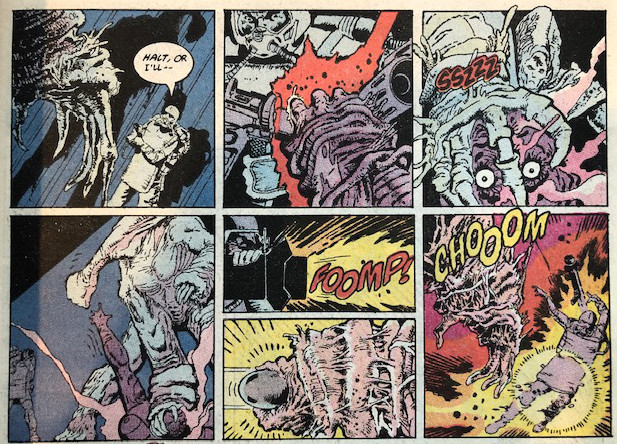
C. Machine Man, "Meets the Failure Five"
Ditko's second MCP feature is a tougher piece to digest than his Namor outing, but, with Cockrum's inks, it's an exceptionally clean contribution--certainly more contoured, bolder, and dimensional than typical late Ditko. There's even a few genuinely percussive moments. 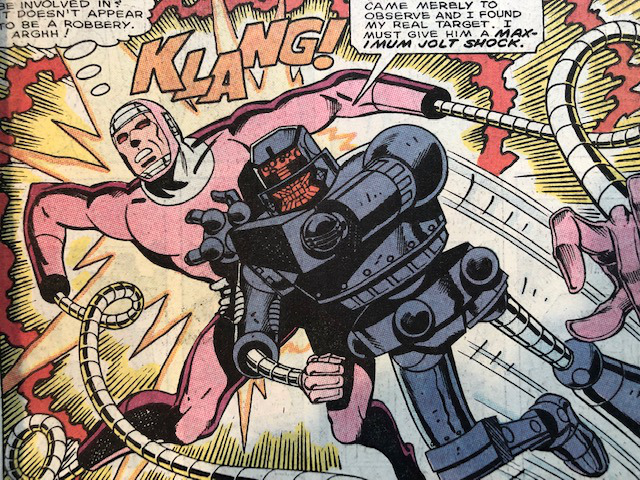
a
The story is, of course, totally inscrutable, featuring an ominous evil robot, and, despite Mike Rockwitz being partially credited with script, the dialogue here is stilted in a manner that only Ditko could manage. We're treated to exemplary lines like "Soon I will have your body. I'll become you. You will be nothing." Perfectly weird stuff. Whatever Rockwitz might have tried to insert, It's hard not to think that Ditko managed some rewrites here. But, for all its arch-goofiness, it zips along as an era straddling oddity, not least because of the title.
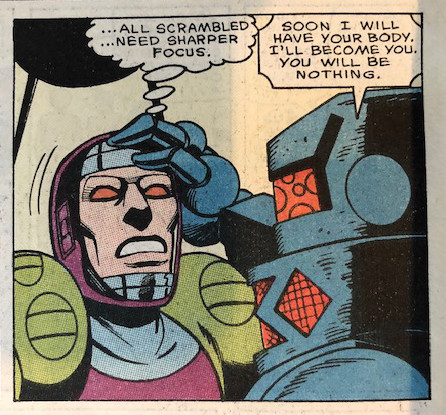
D. Colossus, "God's Country"
Ann Nocenti takes the helm for what will end up being a seven-part Colossus feature--the first MCP story helmed by a woman writer. Nocenti immediately foregrounds Colossus' Russian heritage by cramming myriad bits of political subtext directly into the text with mixed results that veer closer to Red Heat than The Russia House. We're also tracking a family on picnic working through some hackneyed 80s Cold War talking points. For an exceptionally chatty feature, Leonardi works hard to keep the bodies lively, distinctive, and communicative. There are some promising pieces here, but genuine narrative peril that the story won't transcend flat footed political commentary while offering little else character-wise.
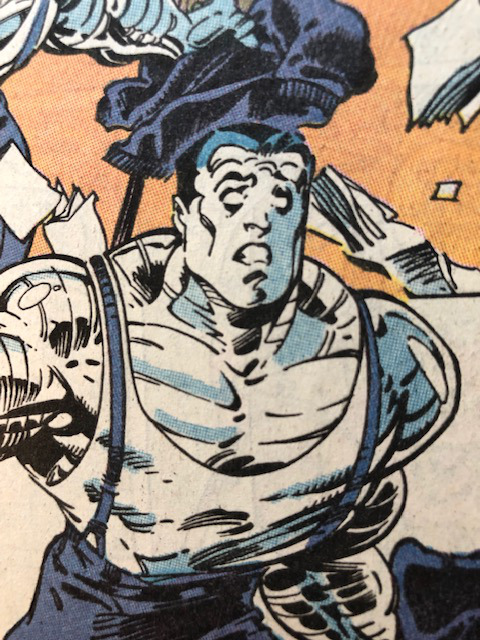
Power Ranking: Wolverine (A-), Man-Thing (B+), Machine Man (B-), Colossus (B-)